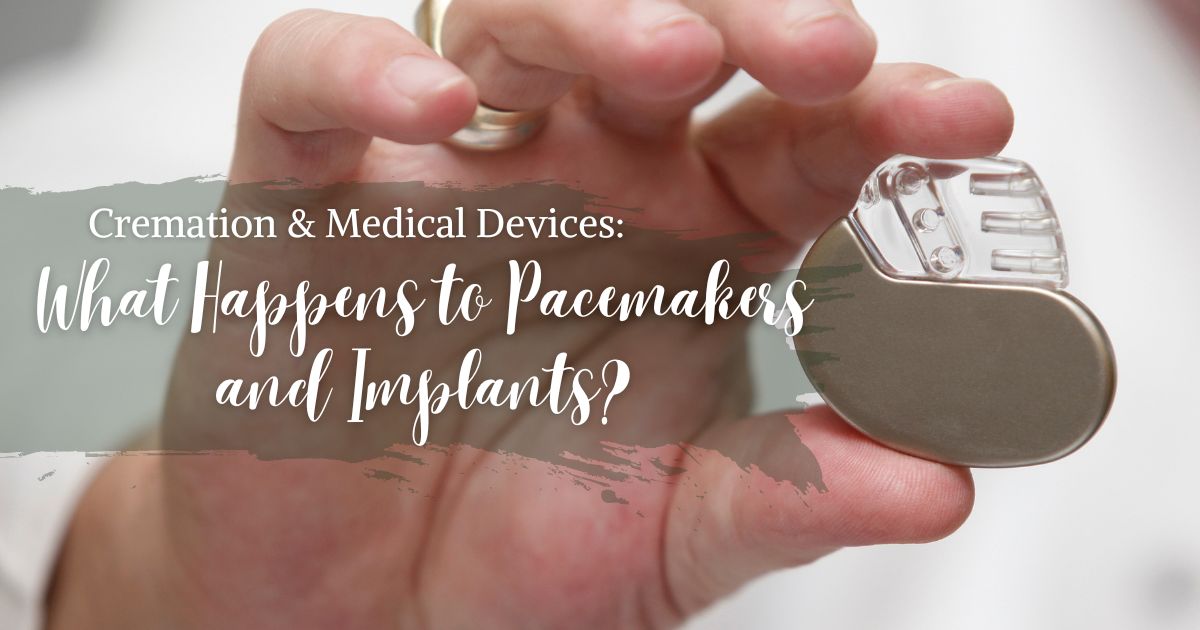
When preparing for cremation, one question that often arises is what happens to medical devices like pacemakers, implants, or prosthetics. These items are a common part of modern healthcare, but they require special handling during the cremation process. Here’s what families need to know about how crematories manage medical devices and ensure a safe, respectful process.
Why Medical Devices Must Be Removed
Medical devices such as pacemakers, defibrillators, and certain implants cannot be cremated. These devices often contain batteries or materials that can pose serious safety risks when exposed to the high temperatures of a cremation chamber. For example, pacemakers can explode under extreme heat, potentially damaging the equipment or harming crematory staff. To prevent these risks, crematories require that such devices be removed before the process begins.
The Removal Process
The removal of medical devices is typically handled by a qualified professional, such as a funeral director or medical technician, before the body is transferred to the crematory. In some cases, this may involve coordination with a hospital or medical facility. Families are usually informed about this step during the planning process, and the removal is carried out with the same care and respect as every other aspect of the cremation.
What Happens to Removed Devices?
Once removed, medical devices are often recycled or disposed of under local regulations. Many crematories work with specialized recycling programs that safely handle these materials, ensuring they don’t end up in landfills. In some cases, devices like prosthetics may be donated to organizations that refurbish them for use by others in need.
Other Implants and Materials
Not all implants need to be removed. Items like dental fillings, joint replacements, or surgical screws are typically made of materials that can withstand the cremation process. After cremation, these materials are separated from the ashes using magnets or other methods and are often recycled. The remaining ashes are then processed and returned to the family as usual.
Transparency and Communication
Reputable crematories are transparent about their policies regarding medical devices and will communicate clearly with families about what to expect. If you’re unsure whether your loved one has a device that needs to be removed, the crematory staff can guide you through the process and answer any questions you may have.
A Safe and Respectful Process
The handling of medical devices is just one example of the care and attention that goes into every cremation. By following strict safety protocols and maintaining open communication, crematories ensure that the process is not only respectful but also safe for everyone involved.
For families, knowing that these details are being handled with professionalism can provide peace of mind during a difficult time. It’s a reminder that even in loss, every step is taken to honor your loved one with dignity and care.





